The Highest Grossing and Best Selling Video Games!
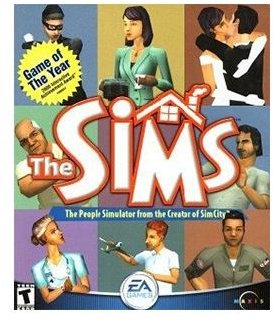
Some Fail to Succeed
It’s hard to determine exactly what makes a bestseller in any field, be it literature, music or films. In the gaming industry, set to scale new summits yearly, developers fiercely compete for novel ideas hoping to secure their place in history with their latest brainchild; most, instead, become dust-gathering boxes, coasters or objects of derision in some “Anonymous” montage. Some might even make the cult-classic status, like a Japanese kuso-ge.
Never has there been a more disastrous debacle than Battlecruiser 3000AD or E.T by Atari, which marked the cartridge-burial rituals of 1983. Then there are others which failed upon release, like Beyond Good & Evil, to then become popular and appreciated like some finely aged vintage.
Apparently only a mere 10% of gaming titles do exceptionally well in the market, an even more worrying statistic considering the gradual decline of sales for the PC platform (source: NPD Group). Instead of looking at the failures, let’s concentrate on the best selling video games for the PC, at least in terms of sales.
The Sims Franchise
The Sims was developed by Maxis Software – founded by Will Wright of Spore fame – and remains the highest grossing game to date, documenting 16 million shipped units all around the world. Maxis tested the waters with the SimCity series, offering a different gaming concept than any previous title released; players could not really loose the game nor were there the usual fast-paced action elements which made prior blockbusters. In his book “The Medium of the Video Game” Mark J.P. Wolf argues that these types of games don’t even fall into the video game category, which should primarily revolve around action, reflexes and rewards.
As the name implies, the game simulates the various stages of a person’s life and encourages a player to make other sim-friends or maintain status in a neighbourhood. Did the Sims pave the way for social gaming, or is it perhaps one of the earliest examples of the numbing-down of the medium? It is arguable that it did spurn the growth of such games, seeing as its appeal to casual-gaming audiences (including a sharp rising interest in the medium by women) ensured its continued success.
2010 marked the 10th anniversary of the game, boasting more than 125 million sold units and hundreds of millions of user created items. These are the facts, though I fail to see the appeal in a game where the boundary between losing and winning is blurred or even inexistent. I’ll go back to watering my plants I think.
World Of Warcraft
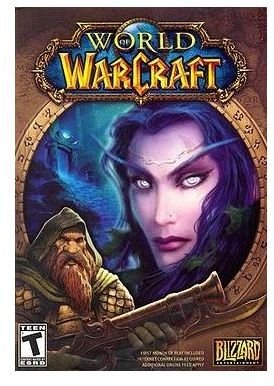
You may know Blizzard Entertainment if you’ve played undeniable classics like Diablo or Stargate. An article on Gamasutra discusses the company’s success by providing a summary of Mike Morhaime’s speech at Austin’s GDC. Fact is this company rarely released a stinker, having cut their teeth with various ports and conversions from platform to platform.
World Of Warcraft drew inspiration from forefathers like Ultima or Everquest, and allowed for the exploration of a vast online RPG environment together with the usual mix of character/class creation. In October of 2010 the game hit 12 million subscriptions making it the most popular MMORPG ever released, with the Wraith of the lich-king proving particularly successful in China.
Aside from Morhaime’s points in his speech, the success behind WOW can be attributed to simple factors; its ability to run on almost any machine, be it old or new, code which works and emphasis on the social aspects of the game, rather than the mechanics.
I don’t want to be a spoil-sport here, but the few times I have been stupid enough to pay for a subscription I found the game a little lifeless, without many of the RPG/mythical elements which I particularly enjoy; you find clan-players discussing anything other than in-game events, like what they had for dinner. Give me Aardwolf, Neverwinter Nights or Threshold any day.
Half-Life
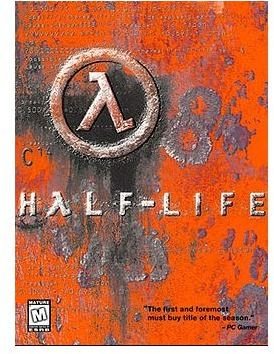
Welcomed as something of an innovation in the FPS genre upon its release, Half-life saw some spectacular chase/action sequences, innovative game play involving vehicles and real-time interaction in action sequences. Everyone wanted to be Gordon Freeman and kick Alien-grunt’s ass. The game has sold over 18 million units since its release in 1998, which includes its sequel and digital-downloads on Valve.
Why was Half-life so successful? If you are a fan of FPS, and not the rinse-and-repeat formula which floods the market nowadays, you need to play the game to understand how immersive and innovative it is. You will find aspects of Half-life present in subsequently released FPS titles, and suddenly it will all become clear.
Myst
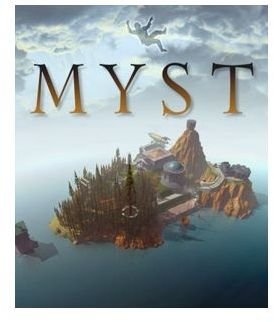
Released somewhat earlier than the previously listed titles, Myst is a puzzle adventure game which is still regarded as unique in the way it blended surreal worlds with logical puzzles, some quite difficult even for the hardcore riddle enthusiast. More importantly, Myst was the catalyst for the boom of CD-ROM technology, being one of the first games to feature such technology (like The 7th Guest by Trilobyte).
Those listed above are the reasons for belonging to the “best selling video games” hall of fame and the sequel, Riven, also enjoyed moderate success_._ The game spawned the release of many clones, hoping to be as successfull as the original but never repeating that feat, like Riddle of The Sphinx, Timelapse and many others. Lastly, the game ensured a shift on the industry’s part to more adult-oriented games and is considered seminal to the industry’s growth.
Editor’s Choice: Deer Hunter
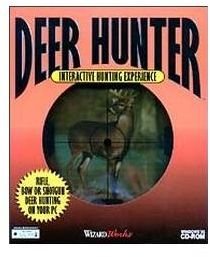
The name may conjure up images of De Niro and Walken playing Russian roulette, but the game isn’t an adaptation. Deer Hunter is a hunting-simulator which started back in the late 90’s, and was developed by Sunstorm Interactive whose specialty lies solely in this genre (think Maddox games or Maxis). The player has the possibility of setting up concealment while in the wilderness and can win trophies by, funnily enough, shooting enough deer (though other animals are also roaming and can be killed).
In all honesty, I only know the game by name and am aware of its popularity when it was first released, but have not played it. Looking at the sales-figures for the game, which document over 10 million units sold, there is no doubt about its “market buster” status: the first game cost about $100,000 to make which ensures its place amongst the big-boys in terms of gross profit margin, adequately fulfilling the Horatio Alger myth.
Deer Hunter is still being developed. The latest incarnation (Deer Hunter Online) will bring the title to the facebook platform- virtual venison enthusiasts rejoice!
Something Missing?
These are the best selling video games in terms of numbers, but you are free to leave a comment below if you feel something is missing from this list. There are many other classics (Doom, Civilization, the same The 7th House mentioned above, the Diablo series etc…) which could have made the list were it not for a choice to only include the real blockbusters. Granted Starcraft is one, but how many Blizzard titles did we have to include?
It is certain that lists like these are aplenty, shoved in the gamer’s face without even needing to do much hunting on the web. I hope you enjoyed this one.
